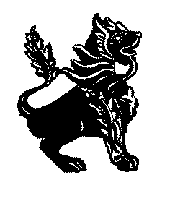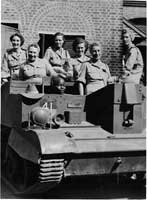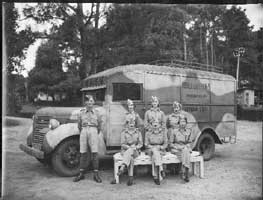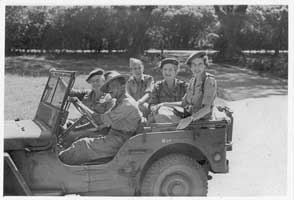
Women's Auxiliary Service (Burma)
1942-46
Introduction - Char and Wads
Mobile Canteens - Army
Entertainment
Reviews - Order Details
Introduction

This web page is about "Chinthe Women", a publication which contains contemporary reminiscences, photographs and diaries about an unusual band of women, who worked alongside troops close to the frontline during the Burma Campaign of World War Two. They ran mobile canteens for all the troops in the "Forgotten Army". The 250 members of the Women's Auxiliary Service (Burma), WAS(B), also tended the starving British POWs as they were rescued from building the Burma Railway.
CHINTHE WOMEN was
researched and published by Sally and Lucy Jaffe, daughter and
granddaughter of Commandant Nin Taylor, who formed and led the WAS(B).
She was awarded an OBE for her contribution to the war.
Sally Jaffe commented,
"I wanted to find out more about my mother, who died in 1952.
Through the strong network of surviving WAS(B) I unearthed a wealth of
personal stories about this unique band of women operating in a war
zone, which you can read in CHINTHE WOMEN."




